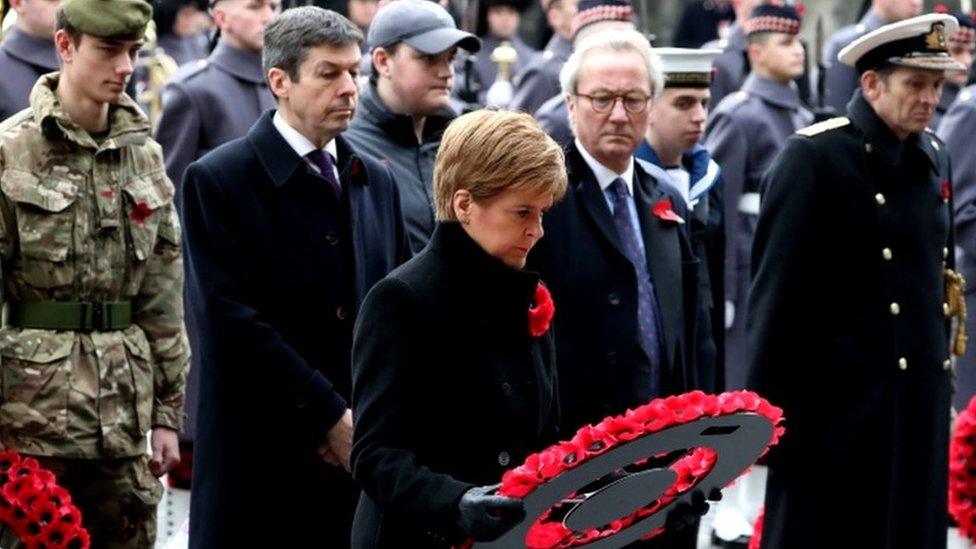Scotland falls silent in Armistice Day remembrance
- Published
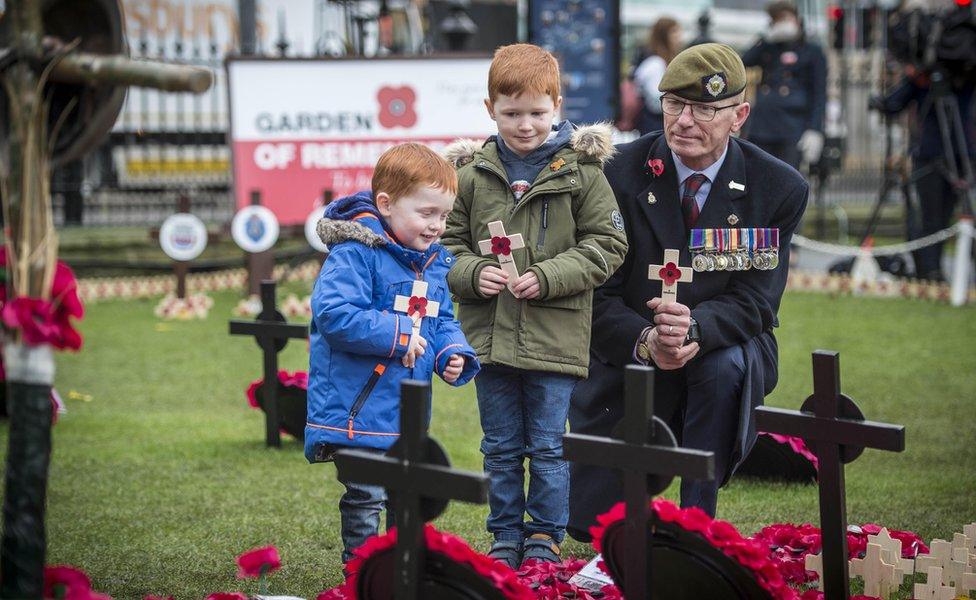
Families gathered at Edinburgh's Garden of Remembrance for a service on Monday
People across Scotland bowed their heads during a two-minute silence which marked 101 years since the end of World War One.
It was part of a series of commemorative events for Armistice Day.
Veterans paid their respects during a service at the Edinburgh Garden of Remembrance while crowds gathered at memorials across the country.
Silences also took place at Glasgow Central, Edinburgh Waverley and Ayr train stations.
Councillor Joan Griffiths read the ode Binyon's Lines by Laurence Binyon at the Edinburgh service which was attended by service personnel past and present.
Poppyscotland said several hundred members of the public also attended.
Crowds heard music played by a bugler from The Band of The Royal Regiment of Scotland and from piper Alasdair Naysmith, from George Heriot's School, in Edinburgh.
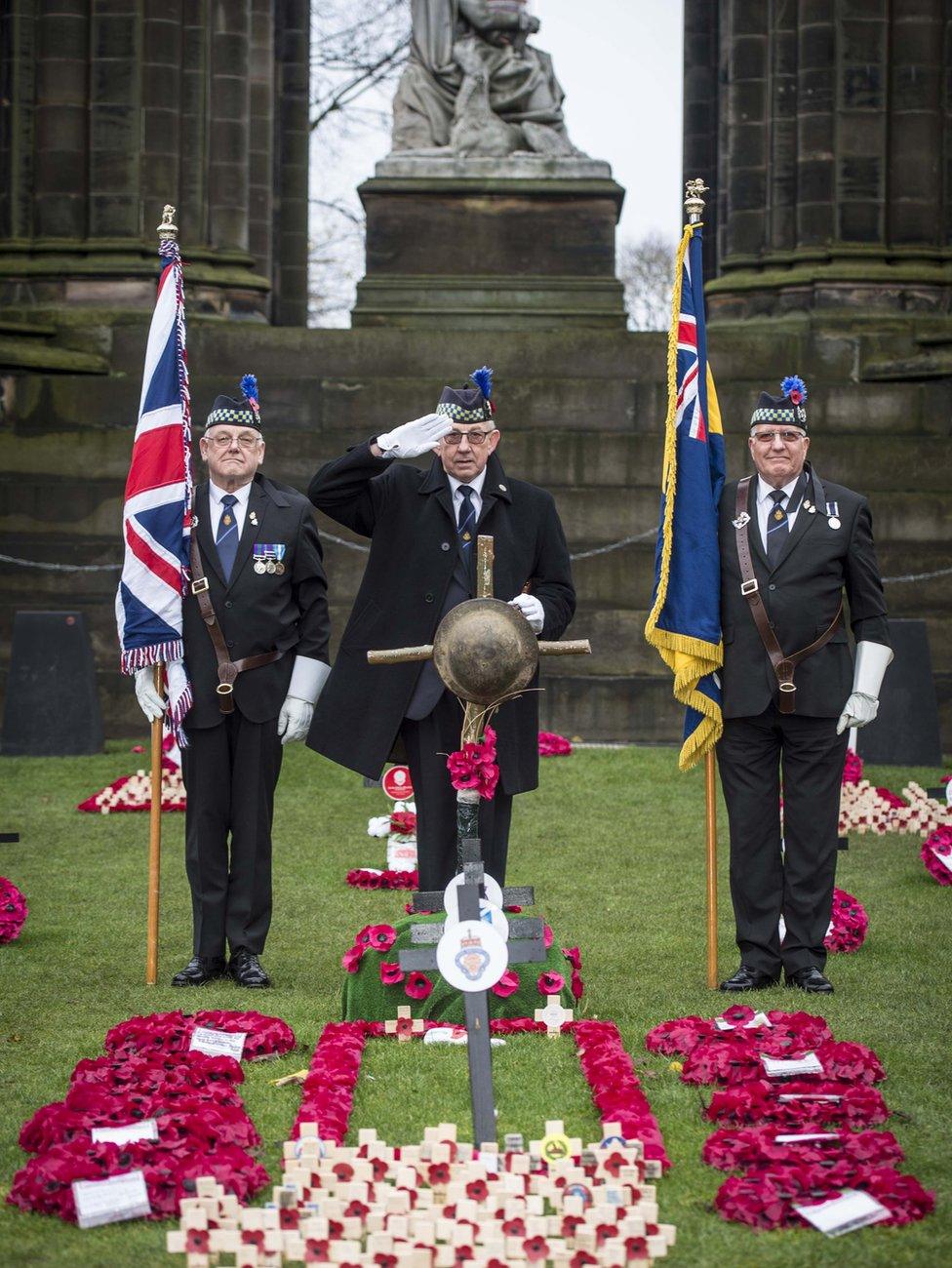
"We will remember them": Poetry was read in memory of soldiers who lost their lives

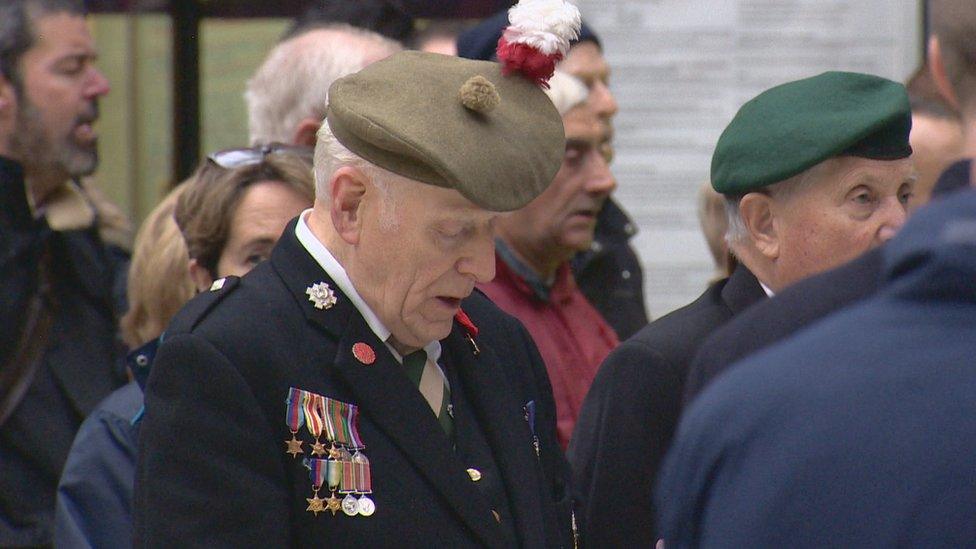
Crowds gathered at Glasgow Central station where another memorial was held
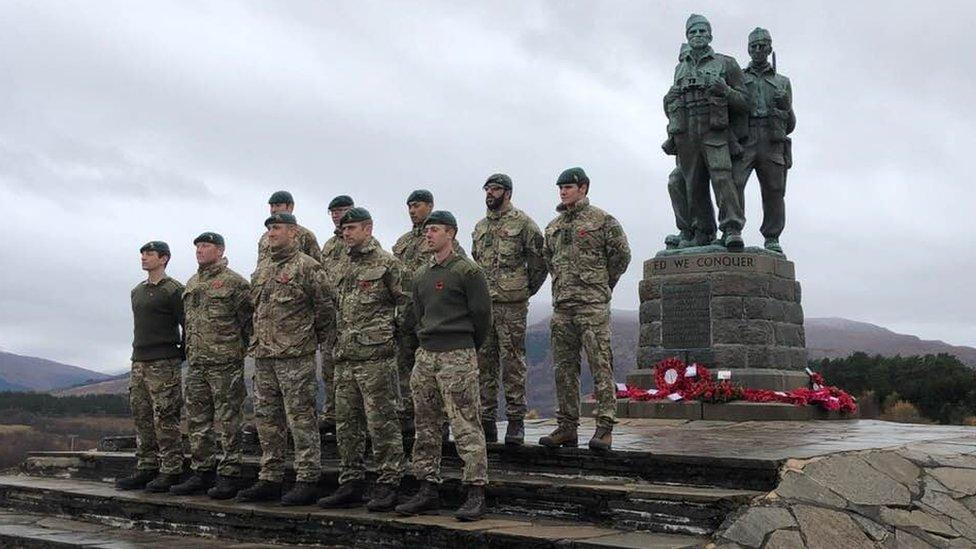
Members of 24 Commando Royal Engineers observing Armistice Day at the Commando Memorial at Spean Bridge in Lochaber
The first minister led national events on Sunday laying a wreath at the Stone of Remembrance in Edinburgh to commemorate those who lost their lives in conflict.
After four years of bloody conflict, the war between the Allied forces and Germany finally ended in 1918.
The tradition of a two-minute silence to remember the dead began the following year.
The armistice signed in Compiègne came into force on the 11th hour of the 11th day of the 11th month.

Allow X content?
This article contains content provided by X. We ask for your permission before anything is loaded, as they may be using cookies and other technologies. You may want to read X’s cookie policy, external and privacy policy, external before accepting. To view this content choose ‘accept and continue’.
Allow X content?
This article contains content provided by X. We ask for your permission before anything is loaded, as they may be using cookies and other technologies. You may want to read X’s cookie policy, external and privacy policy, external before accepting. To view this content choose ‘accept and continue’.

Of the 700,000 Scots who joined the forces, more than 100,000 died during World War One.
Nearly every village, city and town in Scotland has some form of memorial displaying the names of their war dead.
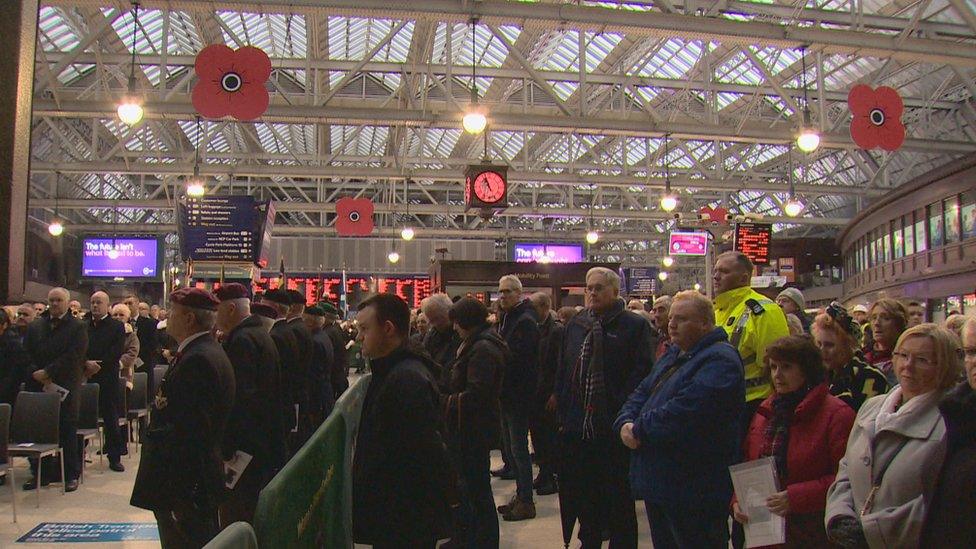
Glasgow Central station held a memorial service on Monday morning
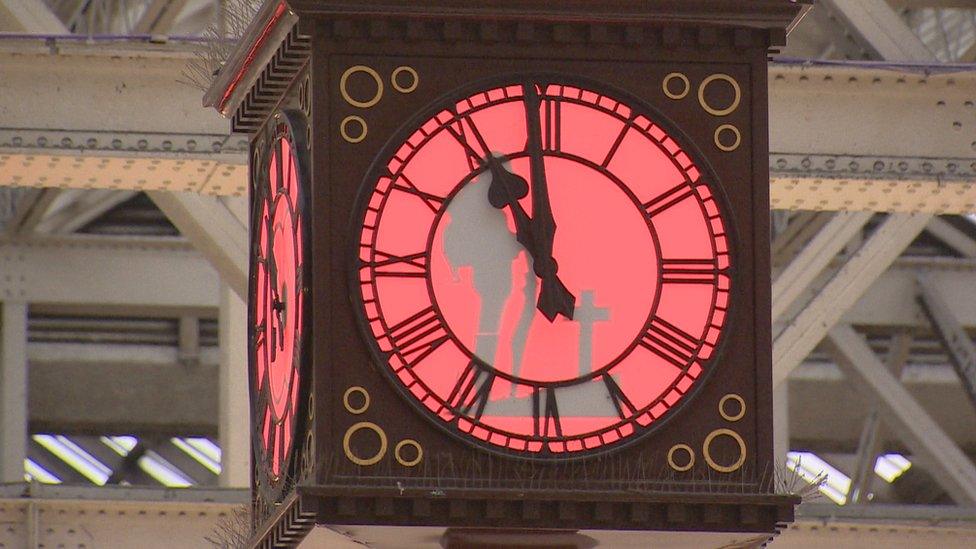
The clock in Glasgow Central turned red as part of Armistice Day commemorations
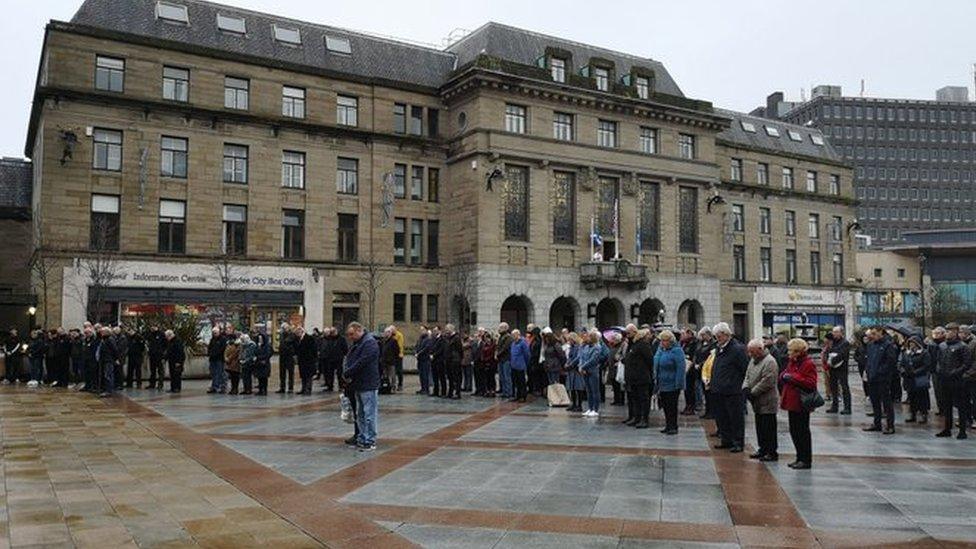
Crowds gathered as a mark of respect in Dundee's City Square
Meanwhile Prime Minister Boris Johnson laid a wreath and spoke to a veteran during a service at the cenotaph in St Peter's Square, Wolverhampton.
Labour Party leader Jeremy Corbyn and shadow foreign secretary Emily Thornberry attended a service outside Islington Town Hall, north London.
The Royal British Legion (RBL) asked that people pause by muting their telephones, closing laptops, switching off television sets "for just two minutes and pay your respects to our Armed Forces community, past and present".
The RBL said it was a time to honour those "who serve to defend our freedoms and way of life".
They said the sacrifice of the Armed Forces community from Britain and the Commonwealth are brought to mind while the innocent civilians who have lost their lives in conflict and acts of terrorism are also not forgotten.
It also serves as a tribute to the special contribution of families and of the emergency services.
- Published10 November 2019
